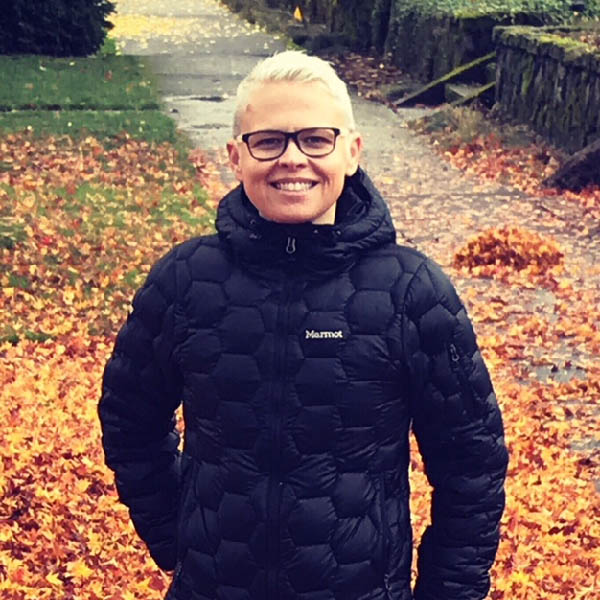Page 2 • (23 results in 0.068 seconds)
-
Biology Courses Take the following two introductory courses: BIOL 225: Molecules, Cells and Organisms BIOL 226: Genes, Evolution, Diversity and Ecology You might also consider taking some of the
introductory courses: BIOL 225: Molecules, Cells and Organisms BIOL 226: Genes, Evolution, Diversity and Ecology You might also consider taking some of the following upper division courses: BIOL 330: Genetics BIOL 342: Microbiology BIOL 352: Comparative Anatomy BIOL 448: Immunology BIOL 453: Mammalian Physiology Often PA schools require you to take a course in microbiology, anatomy and/or physiology. Please make sure you look at the requirements of individual schools, particularly whether they require a
-

Pacific Lutheran University Professor of Biology Amy Siegesmund is the recipient of the American Society for Microbiology’s 2023 Carski Award for Undergraduate Teaching. The award recognizes a university educator for outstanding teaching of microbiology to undergraduate students. What I love about teaching microbiology is that…
. To share in that journey with students is one of my greatest professional privileges and joys—I can’t think of a more rewarding experience as a microbiologist.” Siegesmund regularly teaches microbiology, introductory biology, cellular biology, and immunology at PLU. Her current research focuses on student metacognition and learning; the use of self-assessment to increase metacognition; and student theories of intelligence, learning, and failure. Siegesmund is an alumnus of the National Science
-

Pacific Lutheran University Professor of Biology Amy Siegesmund is the recipient of the American Society for Microbiology’s 2023 Carski Award for Undergraduate Teaching. The award recognizes a university educator for outstanding teaching of microbiology to undergraduate students. What I love about teaching microbiology is that…
. To share in that journey with students is one of my greatest professional privileges and joys—I can’t think of a more rewarding experience as a microbiologist.” Siegesmund regularly teaches microbiology, introductory biology, cellular biology, and immunology at PLU. Her current research focuses on student metacognition and learning; the use of self-assessment to increase metacognition; and student theories of intelligence, learning, and failure. Siegesmund is an alumnus of the National Science
-
Biology is an adventure! It’s solving problems about living organisms. As a student of biology you must have a curiosity about living things and a foundation for questioning, exploring,
biology, physiology, cell biology, genetics, immunology, microbiology, molecular biology, and neurobiology. Biology graduates also find immediate employment opportunities in secondary education, fish and wildlife programs, environmental programs, pharmaceutical industries, basic research, genetic engineering and other biotechnology areas. Our faculty members have expertise in career counseling PLU biology students. They work with you to plan coursework, map out career objectives and assist with
-
12 semester hours in one of the following six work sectors A. Education 12 semester hours from one of the following areas Biology Chemistry Computer Science Education English Geosciences Math
: Introductory Microbiology BIOL 205: Human Anatomy and Physiology I BIOL 206: Human Anatomy and Physiology II BIOL 225: Molecules, Cells, and Organisms BIOL 341: Developmental Biology BIOL 342: Microbiology BIOL 352: Comparative Anatomy BIOL 444: Neurobiology BIOL 448: Immunology BIOL 449: Virology BIOL 453: Mammalian Physiology Chemistry CHEM 105: Chemistry of Life CHEM 403: Biochemistry I CHEM 405: Biochemistry II Kinesiology KINS 277: Foundations of Kinesiology KINS 279: Teaching Physical Activity KINS
-
If you are living with a medically diagnosed food allergy or intolerance, you are not the only one on PLU's campus!
symbols at the stations to inform you which allergens are present: And the allergens will be listed out like this on the GET mobile app: Vegetarian (V), Vegan (Vn), Gluten-Friendly (GF), Gluten (G), Dairy (D), Egg (E), Soy (S), Sesame (Ss), Shellfish (Sf), Fish (F), Peanut (P), Treenut (Tn), Coconut (C), Pork (X)Quick Links American Academy of Allergy Asthma and Immunology Asthma and Allergy Foundation of America Food Allergy and Anaphylaxis Network Allergy icons are displayed based on recipe
-
For either the Bachelor of Arts or Bachelor of Science degree, the student must take our introductory core sequence (BIOL 225 and 226) and a semester of genetics (BIOL 330).
) BIOL 448 : Immunology Explores the physical, cellular, and molecular components of innate and adaptive immune responses. Emphasizes an integrated approach to exploring immunological concepts within the context of human health and disease. Prerequisites: BIOL 330 and one of the following courses BIOL 341, 342, 352, 442, 445, or 453. (4) BIOL 449 : Virology The diversity that exists among viruses is staggering, and there is no type of life on Earth that is not subject to infection by viruses. This
-
May 10, 2024
SmithPsychologyImplicit Learning Biases of Natural Phonotactic Constraints Faculty Mentor: Sara Finley, Psychology We ran a psychological study looking at whether adults prefer some types of sound patterns over others. Participants were generally faster at responding to words that followed vowel harmony, a phonetically natural pattern than disharmony. Makya WarrenNatural Sciences, Immunology and Cancer ResearchModified TREC Assay for Multiple Mouse Strains Faculty Mentor: Jarrod Dudakov & Kristen Cooper, Fred
-

Hutchinson, she organized and set up the Small University Summer Internship program for PLU biology students. Since its start, numerous students have been able to pursue their passions in different fields of research including cancer, HIV, immunology and virology. These opportunities include working with cutting-edge technology and interacting with researchers who are in the top of their field. Most importantly, students are able to gain confidence in laboratories that will propel them to accomplish
-
provides. While working at Fred Hutchinson, she organized and set up the Small University Summer Internship program for PLU biology students. Since its start, numerous students have been able to pursue their passions in different fields of research including cancer, HIV, immunology and virology. These opportunities include working with cutting-edge technology and interacting with researchers who are in the top of their field. Most importantly, students are able to gain confidence in laboratories that
Do you have any feedback for us? If so, feel free to use our Feedback Form.


